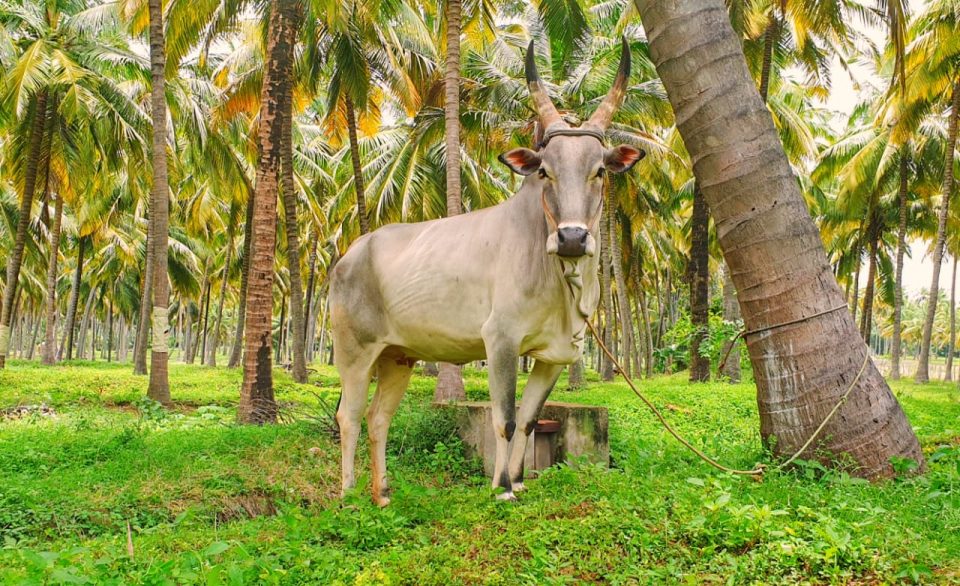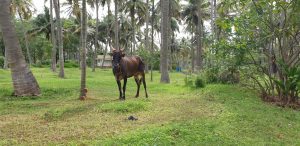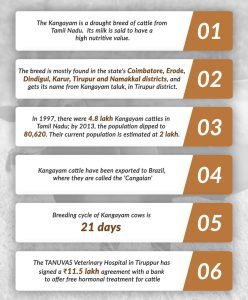
Infertility problems pose existential threat to TN’s Kangayam cattle
A study found that 30% of the cattle breed, used for the Jallikattu sport, were infertile; since they are high-maintenance animals, farmers are forced to sell them

Farmers in western Tamil Nadu are being forced to sell their indigenous cattle due to falling conception rates in the cows.
The Kangayam is a well-known breed of draught cattle whose name derives from Kangeyam Taluk, in Tiruppur. The milk of Kangayam cow has a high nutritive value, though it is a poor milker, and the bulls are commonly used in the traditional sport of Jallikattu.
A recent four-year study of 200 cows found that 30 per cent of them have hormonal imbalances, leading to infertility.
An assistant professor at the Tamil Nadu Veterinary and Animal Sciences University (TANUVAS), which carried out the study, told The Federal: “Out of every 10 farmers we met, three said their cattle were not breeding”. The professor, who did not want to be named, said that ratio could be higher.

M Karthik, a farmer from Erode, told The Federal that he had sold three cows within a span of six months. “I don’t know why [they couldn’t get pregnant]. The cattle were not old – they were between two and four years old. We cannot keep them if they don’t breed. It costs much to maintain and feed the animals,” he said.
Karthik said he had tried “natural service” several times. “After the first attempt, I waited eight months. Then I again took it [the cow] for natural service. But the animal did not conceive. I tried a couple of more times and then I lost hope,” he added.
Selling, the last resort
At least six other farmers shared similar stories with The Federal. R Raja, a farmer from Dharapuram, said even artificial insemination did not work.
“The cattle did not give milk for two years. After failed attempts at natural service, I took the cows for artificial inseminations. Selling them was the last resort,” he said.
A Parivendan, joint director at the TN animal husbandry department, said hormonal imbalances can be treated. “Hormonal imbalances lead to decrease in the secretion of progesterone [which can contribute to abnormal menstrual periods and menopausal symptoms]. However, corrective procedures [to increase the secretion] are available,” he said.
The TANUVAS professor said improper feeding and deworming can lead to hormonal changes. “The farmers give the same kind of food, but the mineral content in the feeds can vary depending on the soil’s condition. Regular deworming can lead to resistance against the medicine, which can also contribute to changes,” he said.
The professor, however, said the breeding cycle of almost all cows in the study was normal: 21 days.

Hardy cattle
Karthikeya Sivasenapathy, a DMK leader and managing trustee of the Senaapathy Kangayam Cattle Research Foundation, said indigenous breeds, which are hardy, rarely develop hormonal imbalances.
“All my cows are breeding. Only one cow, which was left at my farm by another farmer, is unable to conceive,” he said.
The TANUVAS Veterinary Hospital in Tiruppur has signed a ₹11.5 lakh agreement with the National Bank for Agriculture and Rural Development to offer free hormonal treatment for cattle.


